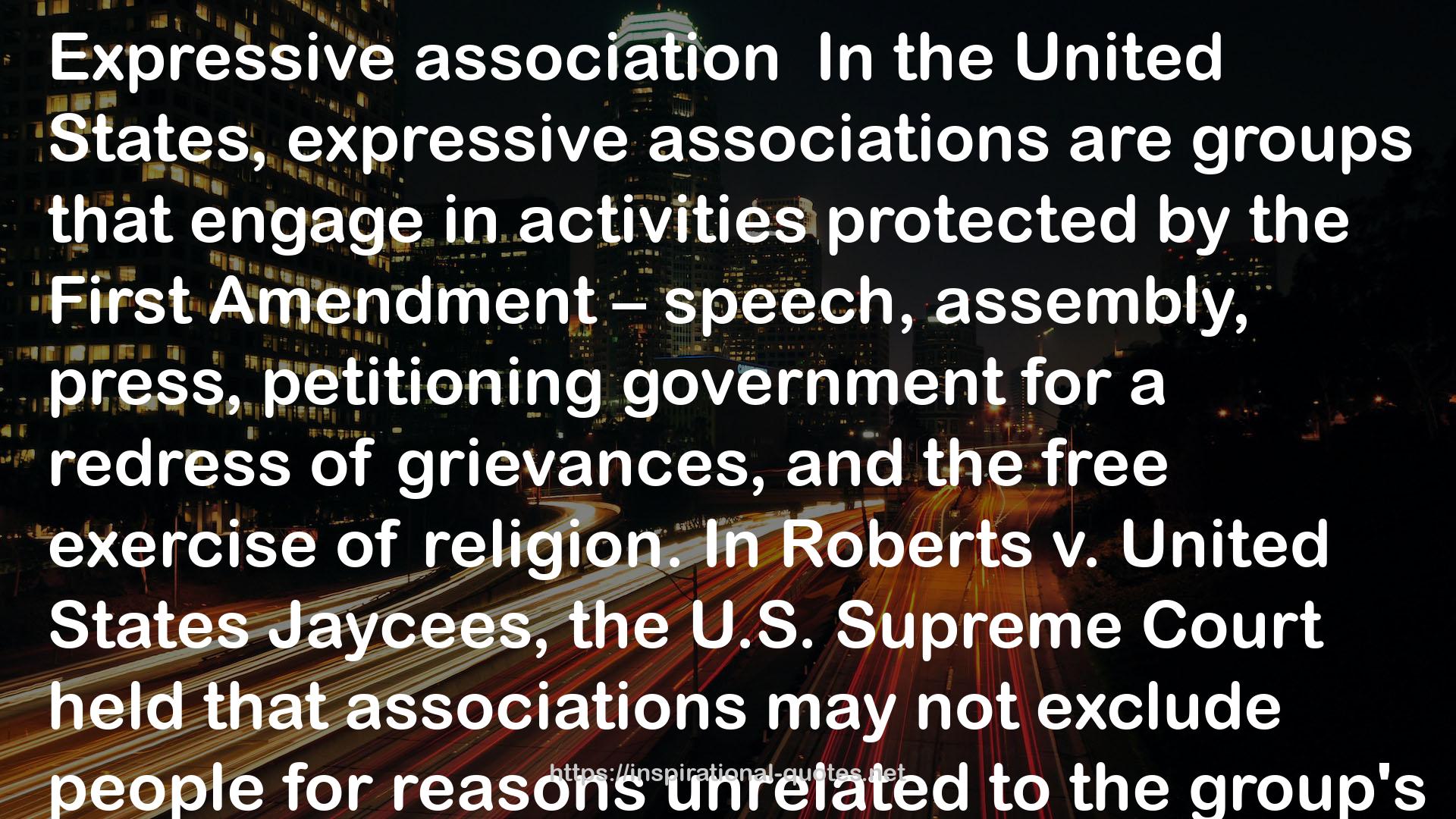" Expressive association
In the United States, expressive associations are groups that engage in activities protected by the First Amendment – speech, assembly, press, petitioning government for a redress of grievances, and the free exercise of religion. In Roberts v. United States Jaycees, the U.S. Supreme Court held that associations may not exclude people for reasons unrelated to the group's expression. However, in the subsequent decisions of Hurley v. Irish-American Gay, Lesbian, and Bisexual Group of Boston, the Court ruled that a group may exclude people from membership if their presence would affect the group's ability to advocate a particular point of view. The government cannot, through the use of anti-discrimination laws, force groups to include a message that they do not wish to convey.
However, this concept does not now apply in the University setting due to the Supreme Court's ruling in Christian Legal Society v. Martinez (2010), which upheld Hastings College of Law policy that the school's conditions on recognizing student groups were viewpoint neutral and reasonable. The policy requires student organizations to allow "any student to participate, become a member, or seek leadership positions, regardless of their status or beliefs" and so, can be used to deny the group recognition as an official student organization because it had required its members to attest in writing that "I believe in: The Bible as the inspired word of God; The Deity of our Lord, Jesus Christ, God's son; The vicarious death of Jesus Christ for our sins; His bodily resurrection and His personal return; The presence and power of the Holy Spirit in the work of regeneration; [and] Jesus Christ, God's son, is Lord of my life." The Court reasoned that because this constitutional inquiry occurs in the education context the same considerations that have led the Court to apply a less restrictive level of scrutiny to speech in limited public forums applies. Thus, the college's all-comers policy is a reasonable, viewpoint-neutral condition on access to the student organization forum. "
― Wikipedia: Freedom of Association
